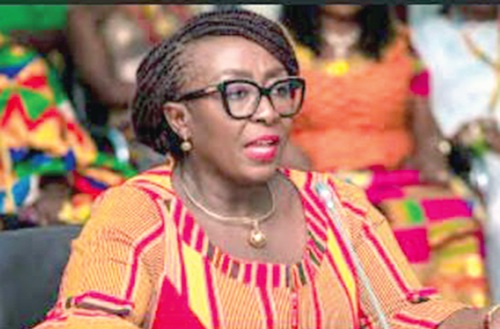Infrastructure development and a thriving tourism sector are the bedrock of economic growth.
The prosperity of developed nations is often built on well-planned infrastructures like roads, modern housing, parks, primaeval beaches, access to potable water and exciting festivals.
These elements enhance the quality of life and shape a country’s unique identity, giving it something to take pride in and showcase to the world.
Developed countries deliberately invest heavily in achieving unique storytelling that depicts their unique culture, which attracts tourists.
Unfortunately, developing countries are grappling with these sectors and could also join the league by acknowledging their current situation, identifying the gaps in their existing systems, developing good and flexible policies and being deliberate about the action and implementation plan that could change the status quo.
Development
Concerning development, Ghana has made great strides, but there are still more hurdles to overcome in the country’s developmental journey.
In my opinion, the first step towards achieving success is recognising our unique abilities and interests by creating strategic ideas that align with our country’s distinctive human and natural resources and committing ourselves to implementing them.
There is also the need to forge our path rather than replicating the approaches of developed nations.
Secondly, the government and state agencies should endeavour to make it a priority to identify and nurture rare but highly productive ideas and talents within the country.
Once these creative minds and innovations are recognised, the next crucial step should be centred on substantial investment in human resources and continuous monitoring and support to ensure sustained productivity and progress.
Furniture
The furniture industry in Ghana holds great potential to become one of the major contributors to the nation’s economy when given the right attention and investment, fueled by urbanisation and real estate development. To fully unlock this potential, we must identify and support talented carpenters in the local economies across the country.
Investing in their craft through advanced training and encouraging them to incorporate Ghana’s rich cultural heritage and vibrant colours into their designs will help create furniture that is distinctly Ghanaian and internationally competitive.
Raw materials, packaging
Investing in raw materials can fuel industrial development, which can enable Ghana to produce unique value-added products. Using technology to brand and package raw materials for export could generate revenue and foreign exchange to fund infrastructure projects such as schools and healthcare facilities to create job opportunities and improve living standards.
Transportation
Ghana’s transportation system relies heavily on road transport. However, the country’s railway network has significantly declined, with the Nsawam train now obsolete and the Tema train only partially operational.
Transportation plays a crucial role in economic growth, and a poorly functioning system can discourage both investors and tourists.
To address this, the government can invest in upgraded transportation infrastructure, such as modern railways, airports and ports to enhance connectivity, facilitate trade and boost tourism.
Creative arts, fashion
Beyond transportation, the government can drive economic growth by supporting the Creative Arts Industry, particularly the fashion sector.
The Kente cloth, which originates from Ghana, speaks volumes of the country’s historical values, heritage, identity and community.
The brand can be positioned as a luxury high-end fashion textile through collaborations with trained fashion designers in Ghana, global designers and brands that can elevate its visibility and demand in the diaspora and generate revenues through selling on online platforms such as Amazon and Alibaba, among others.
The government should also collaborate with the Ministry of Agriculture, utilise the country’s vast lands and invest in large-scale cotton farming to allow the country to produce its yarns, as some West African countries like Cameroon, Burkina Faso and Benin have done.
Additionally, positioning Ghana as a prime investment destination through manufacturing hubs, special economic zones and industrial parks, leveraging elements unique to the country, can attract investors and accelerate development.
These are a few ideas that I believe could add to our unique culture, creativity and authenticity, leading towards development.
The writer is a journalist, PR practitioner, development communicator and Assistant Director, Office of the Head of Local Government of Ghana.
E-mail: quainoojanet23@gmail.com

